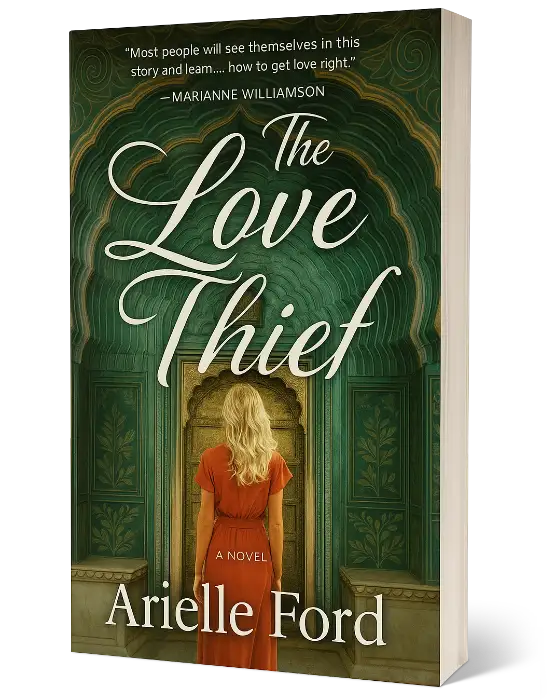Texting as a Love Language
Several years ago, the New York Times quoted an online dater as saying:
“Dating culture has evolved to a cycle of text messages, each one requiring the code-breaking skills of a cold war spy to interpret.”
Yes. This is true.
AND, now there is a way to break the code.
I’ve just finished reading a game changing book about love and texting.
Speaking in Thumbs, A Psychiatrist Decode Your Relationship Texts So You Don’t Have To is written by psychiatrist, Mimi Winsberg. (She is the former resident shrink for Facebook).
It’s a mind-blowing, revealing, and informative work on what to say, what not to say, and how to say it in texting when it comes to love.
Before I share more, I want to say (for the millionth time) that I think doing a lot of texting in the beginning of connecting with a stranger can lead to a huge waste of time.
I suggest you get to a video chat as fast as possible but set it up with a 15-minute time limit. This way you can use ALL of your senses to evaluate and determine if you want to meet this person IRL.
The book is filled with science and research, along with anecdotal stories, informed by the author’s many years as a professional of interpreting behavior.
In the short space below, I am going to give you just a few of the take-aways, AND I strongly suggest you read this book in its entirety.
FACT: Texting is now the dominant mode of communication.
But it is not the MOST effective way to determine if your hot, new, potential date is worth your time and energy. With texting you rely on word choice, semantics and grammar (and emoji’s!) in the absence of taking cues from body language, eye contact and vocal tone.
If you read this book, you will discover how to decode the text messages and improve how your messages are perceived and received.
TAKEWAYS
** Using too many emoji’s can make you appear over eager. (introverts use emoji’s the most)
** Putting a period at the end of a sentence can be perceived as rude or arrogant and even picky.
** Overuse of exclamation points correlate with higher levels of neuroticism and a lack of openness. (and may even come off as amateurish and insecure)
** Men are most likely to respond to short messages. The shorter the better. Anything over 360 characters, typically three sentences, will scare them away. Ask one question at a time, even better than a question, create a statement that can open a conversation up to multiple possible directions. For example, “this amazing Spring weather has me excited on so many levels.”
** Phrases that MAY imply you (or them) are a liar include: “To be honest,” “I’m not going to lie,” and “I swear.”
** Texting compatibility is when you both text at a similar rate and frequency…and there don’t seem to be any rules or “normal” for this. A relationship prospect that texts too much or too little will be perceived as annoying or aloof. If you sent someone a lengthy, heartfelt text and you get a two word reply back, it feels bad…and I would say don’t make any assumptions. Just take your foot off the gas and at the right time have a real conversation (not via text) about it. Perhaps they were busy. Perhaps they were triggered by what you said, just don’t make assumptions and fall apart. Be brave and have a conversation.
** Learning to interpret text messages can reveal whether or not you are dealing with an anxious or avoidant person or someone who is prone to be very controlling, and so much more.
** TMI, too soon, is what the author calls “instamacy.” People who rush into a relationship are pleasers, can lack boundaries, and can be the text equivalent of a drunken stranger pouring their heart out to you in a bar.” Instamacy, while fun and flattering, is a presumption of connection that does not exist.
In the very beginning, use texting to simply decide whether or not (and how quickly) you will speak by phone or video chat. It’s easy to spend hours or days or more having flirty texts that you think are indicative of a “match” only to end up deeply disappointed when you find out your imagination has gone wild and you can’t stand the sound of their voice, the way they look or smell, or that they can converse via text but not in real life, etc.
Beyond covering all of the ground mentioned above, this book is also a solid handbook on what it takes to have a great, long lasting, meaningful relationship. And, for those of you already in a relationship, you will find nearly all of the book useful as well.
Wishing you love, laughter, and magical kisses,
Arielle

 Step into the pages of The Love Thief on a magical journey for you and a guest through the heart of India—following in the footsteps of Holly, the heroine of Arielle’s novel.
Step into the pages of The Love Thief on a magical journey for you and a guest through the heart of India—following in the footsteps of Holly, the heroine of Arielle’s novel.



















Leave a Reply
Want to join the discussion?Feel free to contribute!